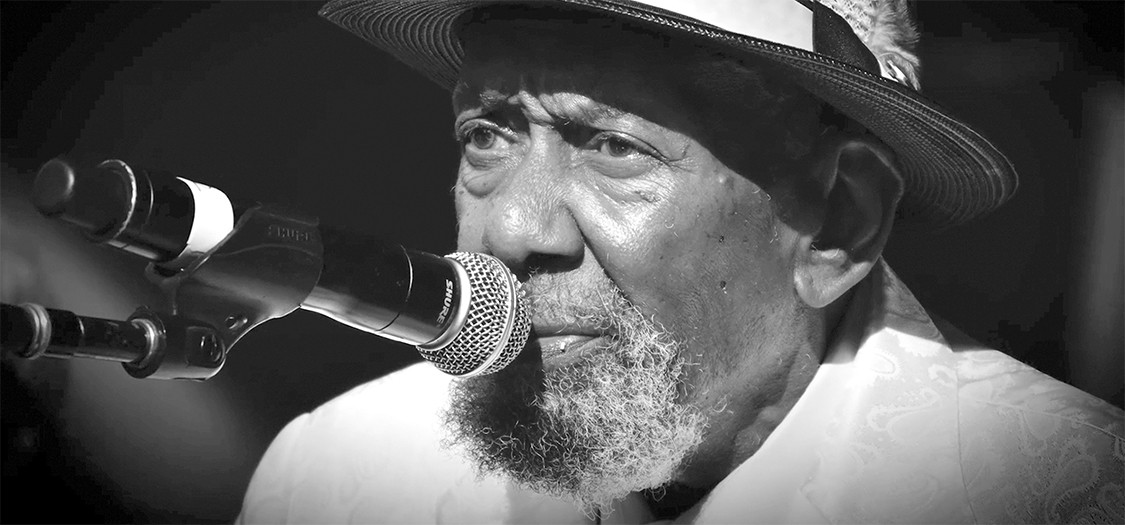
Early in the new documentary Evolutionary Blues: West Oakland’s Music Legacy, Sonny Rhodes recalls watching white country musicians as a kid and being mesmerized by the lap-steel guitarist. “I looked up at him and smiled and said, ‘When I get to be a man, I’m gonna get me one of them and play it, too.'” Then Rhodes’ face contorts. “He said, ‘I don’t think so, son — this is a white man’s instrument and niggers don’t play ’em.’ I said, ‘I’ll be the first to play one, and I’ll be the best at it.'”
And then, he adds, “Now, no one can touch me.”
Rhodes’ story is common in Evolutionary Blues. Raised by sharecroppers in Texas, he came to California through a stint in the military and found a fateful label contract, along with ample opportunities to play in postwar West Oakland haunts such as Esther’s Orbit Room and Eli’s Mile High Club. Hundreds of recordings and countless gigs ensued. So many artists brought Southern sun-steeped guitar styles to Oakland in the middle of the century that many interviewees in Evolutionary Blues refer to “the Texas-Oakland blues pipeline.”
Evolutionary Blues, which premieres on Wednesday, Sept. 27, at the Grand Lake Theater, is a collaboration between Oakland’s government channel KTOP and the Sarah Webster Fabio Center for Social Justice, directed by filmmaker Cheryl Fabio. It’s an overdue ode — a counterpart to KQED’s 1999 documentary The Fillmore, which chronicles a similar rise-and-fall for the neighborhood in San Francisco — to the Great Migration’s indelible impact on the sounds of West Oakland and how structural racism snubbed the city’s center of Black cultural life, 7th Street.
The dotingly produced documentary features interviews with dozens of artists such as D’Wayne Wiggins, Sugar Pie DeSanto, and Marvin Holmes; critics such as Lee Hildebrand and Rickey Vincent; and historians including Isabel Wilkerson and Robert O. Self. You’ll learn the difference between the dragging blues preferred by record man Bob Geddins and the jumping, horn-based style that anticipated funk, as well as about the surplus Army tank that helped raze a neighborhood remembered as the “Harlem of the West.”
Throughout, archival photographs and footage — memorably from Agnes Varda’s documentation of the Black Panthers, and Marlon Riggs and Pete Webster’s 30-minute West Oakland blues doc Long Train Running from 1981 — illustrate alternately ecstatic and painful recollections. For a time during and after the war, we’re told, it seemed no one was homeless or unemployed in the neighborhood; cut to singer Faye Carol discussing the unspeakably stirring resonance of Billie Holiday’s “Strange Fruit.”
There are snappy little profiles of deceased legends such as T-Bone Walker, Jimmy McCracklin, Big Mama Thornton, and Lowell Fulson, but Evolutionary Blues covers such a wide range of subjects that it’s good that it relies more on narrative outline than rigidly bracketed chapters. It’s also blessed with interview subjects who remain enchantingly expressive, such as the singer and consummate storyteller Sugar Pie DeSanto.
Oaklanders nowadays see the remnants of this era on 7th Street — the eroding facade of Esther’s Orbit Room, the sidewalk plaques that compose the Blues Walk of Fame — while using the public services that helped bring about its demise: the BART station and the post office. Other forces, in particular radio, dampened the fortunes of club owners in West Oakland, but Evolutionary Blues pointedly blames the cruel racial calculus of urban planning for razing the community that politicos today seem eager to memorialize.
Surprisingly, Evolutionary Blues also touches on the way some officials’ disregard, if not contempt, for Black styles of music has recurred in recent years. One segment features Geoffrey’s Inner Circle owner Geoffrey Pete recounting a nasty campaign by officers in the Oakland Police Department to close his club (illustrated by headlines and pull-quotes from reports in the Express). This, he explains, is like an attack on the church: “The secular and the sacred aren’t so separate in our communities as they are in some.”
Historian and critic Rickey Vincent provides particular insight into how the same unrest and injustice that fomented the formation of the Black Panthers underlie the city’s shift toward funk (including the decidedly funk-based hip-hop of Oakland emcees Too $hort and MC Hammer). Blues, in this telling, is a style too potent to die — and is destined for rebirth. As Vincent puts it, “Oakland blues turns into Oakland funk because things got a little too heavy.”
For information on future screenings of Evolutionary Blues, go to EvolutionaryBluesFilm.com.











